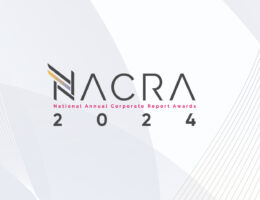By Sustainability, Digital Economy and Reporting Team
Capital gains tax (CGT) and real property gains tax (RPGT) are forms of taxation that affect both individuals and business taxpayers who derive gain from the sale of capital assets.¹ Understanding the implications of CGT and RPGT is crucial as these taxes can impact business financial planning and investment decisions significantly.
Overview of CGT
Effective from 1 March 2024, CGT is implemented on the sale of unlisted shares by Malaysian companies, limited liability partnerships, trust bodies and co-operative societies (disposers). It is applicable regardless of whether the shares are of a real property company (RPC) or not. If the disposer is an individual or a Labuan entity (which satisfies the economic substance requirement) which are exempted from CGT, they remain subject to RPGT if the disposal is of shares in an RPC. This is a significant change in the Malaysian tax landscape under Budget 2024. The key features of this reform include:
- Disposers have a choice of either a 10% tax on net gains arising from the disposal of unlisted shares (the net gain) or a 2% tax on gross sales value for shares acquired before 1 January 2024.
- Other than the above, the fixed tax rate is 10% on the net gain.
- An exemption from CGT from 1 January 2024 to 29 February 2024 under the Income Tax (Exemption)(No 7) Order 2023 [P.U.(A) 410/2023].
Exemptions from CGT were announced in the 2024 Budget Speech on disposals of shares as part of an approved initial public offering and intragroup restructuring exercises. However, no guidance is available yet on these exemptions. In addition, the Finance Minister II, Datuk Seri Amir Hamzah Azizan announced recently that there will be no CGT and taxes on foreign sourced income (FSI) on unit trusts. The CGT exemption is effective from 1 January 2024 to 31 December 2028 and FSI exemption is applicable from 1 January 2024 to 31 December 2026.²
Key differences between CGT and RPGT
The interplay between CGT and RPGT could be seen through identification of key differences between CGT and RPGT as set out below.
Matter | CGT | RPGT |
|---|---|---|
Chargeable assets | a. Capital assets situated in Malaysia: • shares in unlisted companies incorporated in Malaysia. • shares in a foreign incorporated company deriving value (directly or indirectly) from real property in Malaysia. b. all capital assets situated outside Malaysia (i.e. taxable upon remittance of gains into Malaysia) | Real property situated in Malaysia and shares in a real property company (RPC). Note: After the implementation of CGT, RPGT no longer applies on disposals of RPC shares by Companies, Limited Liability Partnerships (LLP), Cooperatives and Trust Body. |
Chargeable person (disposers) | Companies, Limited Liability Partnerships (LLP), Cooperatives, Trust Body | Companies, partnerships, a body of persons, LLP, a corporation sole and Individuals Examples: • Companies – local and foreign • Individuals – citizens, non-citizens, permanent residents & non-permanent residents • Trustee – a trustee of a trust • Society – a society registered under the Societies Act 1966 and a body of persons registered under any written law in Malaysia |
Tax rate | a. Domestic source • 10% of net gain (for assets to be acquired after 1 January 2024) • 2% of gross disposal price or 10% of net gains (for assets acquired before 1 January 2024) b. Foreign source • Prevailing tax rate for companies, LLP, Trust Bodies is 24% while for Co-operatives is from 0% to 24% (at scaled rates). | 0% to 30% (depending on the category of disposers and the holding period of the chargeable asset) Please click here for more details. |
Tax returns | The disposer is required to submit CGT returns within 60 days from the date of disposal. Click here – CGT return form filing programme for more information. | The disposer and acquirer are required to submit RPGT returns within 60 days from the date of disposal. |
Payment of tax | Payable within 60 days from the date of disposal. For foreign source CGT, payment is at the time of remittance into Malaysia. | Payable within 30 days from the date of the notice of assessment. Note: The self-assessment method for RPGT will be introduced on 1 January 2025 and the returns submitted will be treated as assessments raised by the Director General of Inland Revenue. |
Key exemptions | CGT exemption be provided on gains from disposal of shares relating to: • Initial public offering approved by Bursa Malaysia Berhad • Restructuring of shares within the same group • Venture capital companies (Details of the above exemption have yet to be announced) | Amongst the exemptions available on gains from disposal of chargeable assets by individuals are as follows: • The amount of RM10,000 or 10% of the chargeable gain, whichever is greater. • A taxpayer who is a citizen or a permanent resident is exempted from RGPT in respect of the disposal of one private residence. Please click here for more details. |
The Malaysian Institute of Accountants (MIA) with other tax professional bodies have submitted a list of issues arising from the implementation of CGT to the Ministry of Finance. The issues are policy and operational in nature such as matters affecting transactions in January and February 2024, exemption, filing requirements, definition of shares, definition of disposal, determination of date of disposal, disposal price market value, acquisition price, treaty relief for CGT purposes and other matters.
It is advisable that you consult with licensed tax experts to ensure adherence to latest regulations. Seeking advice from professionals can assist you in effective tax management and mitigate the risk of penalties for non-compliance.
¹ Capital asset means movable or immovable property including any rights or interest thereof. .
² https://www.thestar.com.my/business/business-news/2024/01/16/govt-exempts-cgt-fsi-taxes-on-unit-trusts





